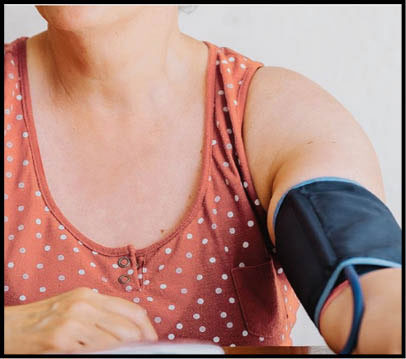People with high blood pressure had a 22 percent higher risk of being admitted to a hospital or dying from COVID-19, regardless of other factors, such as age, sex, ethnicity or weight status, according to a new U.K. study.
The research, published on November 9 in the journal PLoS One, is the first study to show the extent to which high blood pressure, also known as hypertension, can be directly linked to patients developing severe COVID-19.
These findings further emphasize the importance of adequate blood pressure control, said senior study author Ian Wilkinson, BMBCh, a cardiology consultant at Cambridge University Hospitals NHS Foundation Trust (CUH) and professor of therapeutics at the University of Cambridge. “Unfortunately, post-pandemic, the rates of blood pressure control have worsened, as have the number of people being screened and identified as having high blood pressure,” he said.
Nearly Half of All U.S. Adults Have High Blood Pressure High blood pressure is when blood pressure stays higher than normal. In 2017, the American College of Cardiology and the American Heart Association published new guidelines, and high blood pressure is defined as at or above 130/80 mmHg.
The first number, called systolic blood pressure, measures the pressure in your arteries when your heart beats. The second number, called diastolic blood pressure, measures the pressure in your arteries when your heart rests between beats.
Nearly half of adults in the United States — 47 percent — have hypertension, according to the Centers for Disease Control and Prevention (CDC). Only about 1 in 4 adults with hypertension have their conditions under control.
Risk of COVID-19 Significantly Increased When Systolic Blood Pressure Exceeded 150 mmHg Although hypertension appears to be one of the most common comorbidities in people with COVID-19, there is still a lack of clarity about whether that’s related to the systolic blood pressure or even the type of blood pressure medication a person is taking, according to the authors.
The study used data from the U.K. Biobank, a research database that contains in-depth genetic and health information from half a million U.K. volunteers. Researchers identified 16,134 people who had tested positive for COVID-19 and who had linked medical records, death records, and COVID-19 lab results.
Researchers included data up until early 2021, which was before widespread availability of the COVID-19 vaccine in the United Kingdom.










